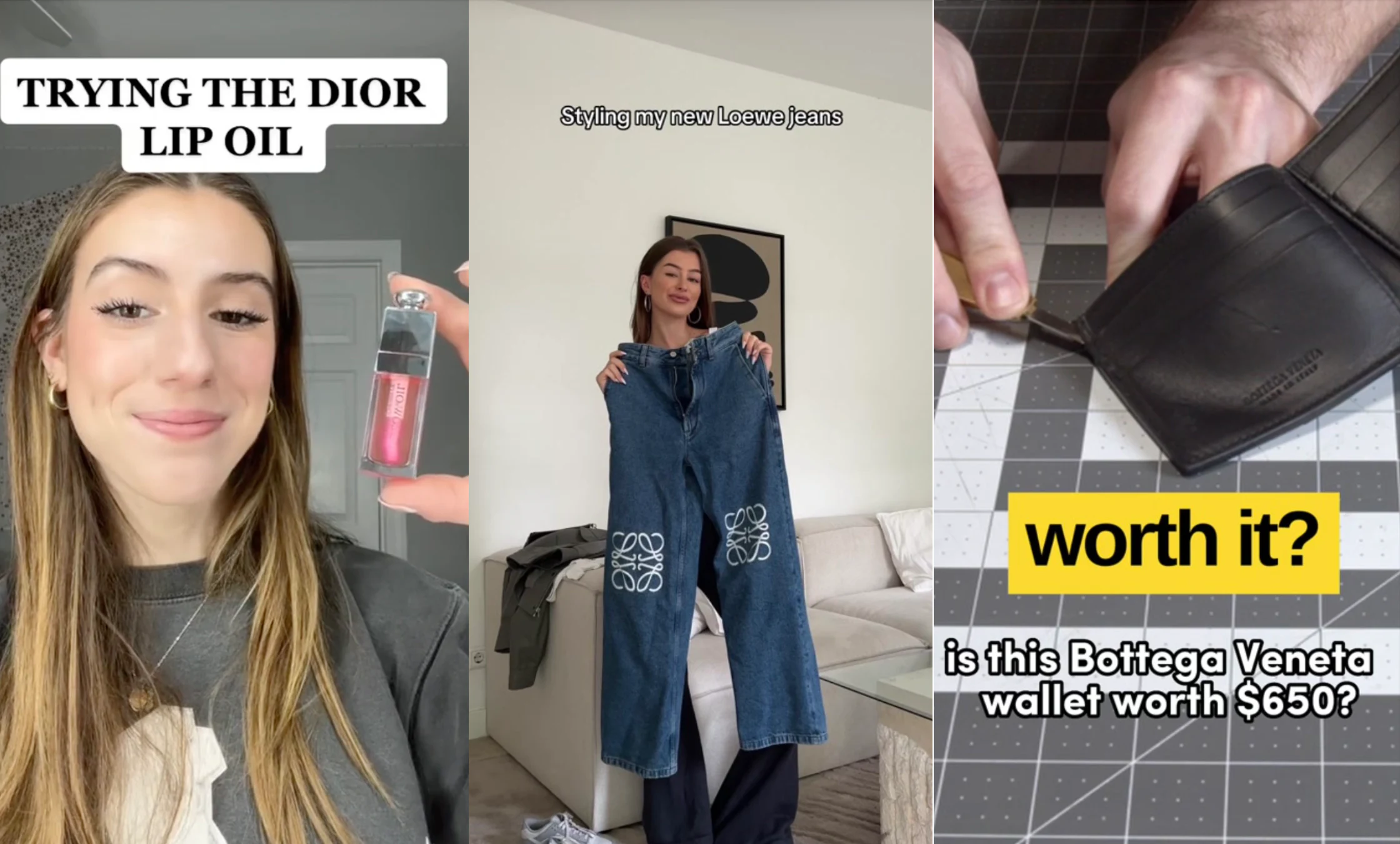Predicting Luxury Trends in 2024: What Surprises Lie Ahead?
The past year has brought numerous lessons for brands, marking a shift in consumer behavior. In 2023, a new era of consumer behavior began to emerge, with luxury brands focusing more on enhancing experiences and e-commerce.

Summary:
- TikTok Users Have Heightened Aesthetic Preferences
- NFT Community: A New Standard in the Luxury Playground
- Potential of AI
- High Fashion in the Sports Industry
Last year, the global luxury market reached $1.6 trillion, growing from 8% to 10% across all categories. However, no one can guarantee that this growth rate will be sustained in the next 12 months. Instead, experts predict that consumers will become more frugal in their spending habits.
“2024 will redefine the luxury industry,” Daniel Langer shared in his latest column for Jing Daily. Now, all eyes are on those who dare to go against the tide. They are the “innovators” unafraid to explore new technologies like artificial intelligence (AI) and NFTs or merge with the sports industry. The following article will highlight the trends that may reshape the luxury landscape in 2024.
TikTok Users Have Heightened Aesthetic Preferences TikTok remains a key driver for luxury fashion trends, but audiences are growing more discerning.
With over 45 million daily users, TikTok has become ubiquitous across industries since 2018, influencing consumer decisions ranging from hotels and restaurants to fashion and beauty trends. While initially luxury brands struggled to keep up with this trend, a report by Launchmetrics indicates that luxury fashion brands have been increasing their Media Impact Value (MIV) on TikTok faster than fast fashion brands on the platform.
For luxury brands, TikTok presents an opportunity to diversify their investment portfolios and cater to the differences between generations, as well as attract new luxury consumers. However, it is not the only focus for them.
Katie Devlin, trend assistant editor at Stylus, shared with Jing Daily: “TikTok will undoubtedly remain a valuable marketing resource for luxury brands in 2024, but brands will need to be more creative.”
Consumers may increasingly analyze the content shared by content creators in 2024. Devlin notes that luxury brands should approach this platform with caution.
She added: “Many consumers are feeling fatigued with influencers and dislike the constant product placements, so trust and authenticity are paramount when it comes to who they choose to engage with. For luxury brands, this may mean working with a variety of influencers to connect with consumers in a more authentic way.”
NFT Community: A New Standard in the Luxury Playground Maison Margiela’s Web3 Gamification: A Revolution in Fashion and Community Building
Last year, we saw some traditional luxury brands, such as Maison Margiela and Gucci, develop their own NFT games. And Louis Vuitton has also officially entered the market.
Despite the tumultuous past of the industry, the top priority for fashion houses today is to stabilize their image after the NFT frenzy. They need to adjust their approach to empower discreet luxury consumers.
Alexandre Frih, founder of the Next Decade digital product platform, told Jing Daily: “In 2024, the luxury NFT market may focus on ownership rights and digital exclusivity. Specifically, the luxury industry in the coming year will want to turn digital ownership into a major trend.”
This year, there may also be more luxury contenders pushing forward their own NFT communities, limiting access to only a select few initial investors. And exclusive “phygital” products (blending digital and physical realms) will see a surge. Gucci and Louis Vuitton have previously launched such projects, offering high-end privileges reserved for members, including exclusive invitations to fashion week shows, mystery boxes, and personalized styling sessions.
Potential of AI Can luxury use AI without losing its luster?
After a year where artificial intelligence has exploded in the public eye from brands like Valentino and Moncler, fashion houses need to figure out how to prevent similar risks as with the metaverse and NFT market.
George Yashin, CEO of AR fashion company Zero10, concluded that while many luxury players may have wanted to experiment with this technology last year, they might not want to try it again in 2024. He said: “Brands should steer clear of merely announcing the use of AI for the sake of innovation and instead actively integrate it into their operations.”
We should explore diverse touchpoints of technology, such as hiring AI artists for engaging campaigns or implementing machine learning for valuable personalized experiences developed based on data or previous experiences.
Roxanne Iyer, COO of the digital fashion platform Syky, noted that: “AI will be a great catalyst for humanity. However, diversity in thinking and talent is more important now than ever.”
High Fashion in the Sports Industry
With LVMH’s participation in the upcoming Paris 2024 Olympics, many fashion houses have used the tunnel as a venue to showcase new collections, and trends like “Tenniscore” are gaining popularity – this resurgence marks the convergence of sports and luxury. Male athletes naturally ‘come into focus’ and receive collaboration invitations from major players in the industry.
With the backing of one of the largest luxury conglomerates, the Olympic Games may become a more fashionable event than ever before. The sports festival takes place at a time when technology on the field is becoming increasingly prevalent. Consumers are willing to spend more on products from renowned brands like On Running and Hoka,…
Luxury brands are also investing more in various industries. Last November, Prada announced a collaboration with NASA to design space travel suits for Artemis 3. This marks the first time an Italian luxury fashion house has collaborated with a space company.
In conclusion, the luxury landscape in 2024 is poised for significant transformations, driven by evolving consumer preferences, technological advancements, and innovative collaborations across industries. As brands navigate these changes, creativity, authenticity, and adaptability will be key to staying relevant in the ever-changing luxury market.

